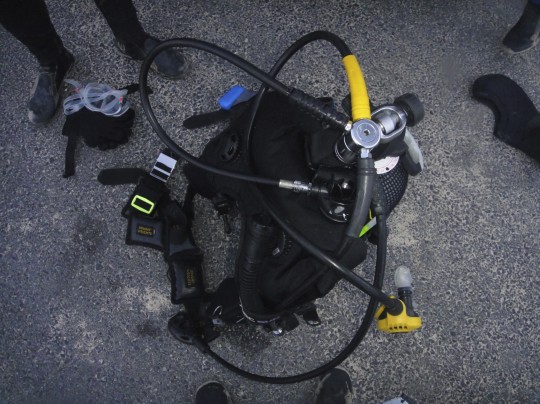Ear or sinus problems
If your nose and/or ears are blocked, stay dry until they’re cleared. If you dive with a blocked nose, you can potentially end your diving career altogether, as well as causing yourself a painful injury.
Alcohol and drugs
If you drank too much within the last 24 hours, or took recreational drugs, stay out of the water unless you have a death wish. How you feel is often no indication of how substance abuse has affected your reflexes and judgment.
Prescription drugs such as painkillers and sinus medication may also impair your concentration and make you unfit to dive. Also, be very careful of diving after taking medication that you’ve never used before.
Anxiety
If you are feeling very nervous about the dive, I’d think very, very carefully about whether you want to go ahead with it. Try and identify what’s making you anxious. Are you planning a dive that is beyond your capabilities? Do you trust your buddy? Are you auditioning for Jackass? If you take risks, you will come short.
Your buddy
Do you know your buddy? Are you comfortable with the diving practices of the group you’re joining? If you’re with an instructor, you are within your rights to ask to see his certification card. Trust is vital when you are scuba diving, and it’s better to call off a dive than to go out with a group or individual whose diving practices are suspect. Stranger danger doesn’t only apply to six year olds.
Pressure from others
Do YOU want to do this dive? Or does your husband, wife, boyfriend, girlfriend, or best friend want you to do it more than you yourself want to? Analyse your reasons for getting in the water very carefully. If YOU don’t want to, it’s better to say no than to do something that you are not comfortable with.
Your kit
You need to check your kit yourself, BEFORE you get in the water. Things to check include:
- that your air smells clean and fresh, and has no discernible taste
- that your cylinder has been filled – you have sufficient air to complete the dive
- that you can inflate and deflate your BCD
- that your torch batteries are charged, if applicable
- what the Nitrox mix is, if applicable
- that your dive computer is set to the correct Nitrox mix, if applicable, so it gives you the correct bottom time and maximum depth
- you have the correct exposure protection (diving in freezing water with a thin wetsuit is asking for trouble!)
Travel plans
Are you taking a flight within 12-24 hours of diving?









Comments are closed.